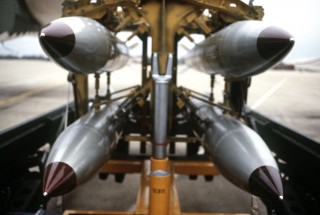Efforts by the United Nations to ban nuclear weapons began on Monday 27 March 2017, but these efforts may be undermined before they get anywhere – the United States, Russia, and China are among 40 other nuclear-armed nations absent and their reason is that a nuclear ban is impractical.
The absentees were conveyed to the international organisation by the US Ambassador to the UN, Nikki Haley.
She said that the countries skipping the talks “would love to have a ban on nuclear weapons, but in this day and time we can’t honestly say we can protect our people by allowing bad actors to have them and those of us that are good trying to keep peace and safety not to have them.”
Britain’s UN Ambassador Matthew Rycroft said: “The UK is not attending the negotiations on a treaty to prohibit nuclear weapons because we do not believe that those negotiations will lead to effective progress on global nuclear disarmament.”
North Korea’s latest actions might have pre-empted the conditions for the boycott by nuclear-armed nations. The increasingly isolated nation has been rapidly testing missiles – in 2016, they launched 20 missiles and last February, four missiles were launched into the Sea of Japan.
North Korea carried out two nuclear tests last year and has continued to test ballistic missiles as recently as this month, in violation of UN resolutions. North Korea has said its nuclear efforts are meant as a deterrent against what it sees as US hostility. The Asian country’s UN Mission didn’t immediately respond to an inquiry Monday about the disarmament talks.
All seen as agitation despite sanctions that have been placed. So there is the question of the effectiveness of the UN sanctions?
However, supporters of the ban believe that it’s time to finally eliminate the use of atomic weapons. More than 100 countries voted for a UN General Assembly resolution last year to start discussions, with nations including Austria, Brazil, and Ireland leading the effort.
Japanese representative Nobushige Takamizawa said that North Korea’s actions challenge the non-proliferation approach. Japan, is the only country to have experienced an atomic air strike which happened during World War II.
The negotiations aim to create “a legally binding instrument to prohibit nuclear weapons, leading towards their total elimination” and supporters are hopeful that a document will be ready by July.
Opponents of the ban plan say gradual disarmament has made a difference. The US has reduced its arsenal by 85 percent under the Non-Proliferation Treaty, and Britain has cut its by over 50 percent since the height of the Cold War, according to Ambassador Matthew Rycroft.
Chinese and Russian representatives didn’t join the boycotters’ news conference, but the two countries had said previously that they wouldn’t participate in the talks.
The administration of US President Donald Trump is reviewing the goal to have a world free of nuclear weapons, an aim embraced by previous Republican and Democratic presidents and required by a key arms control treaty.








